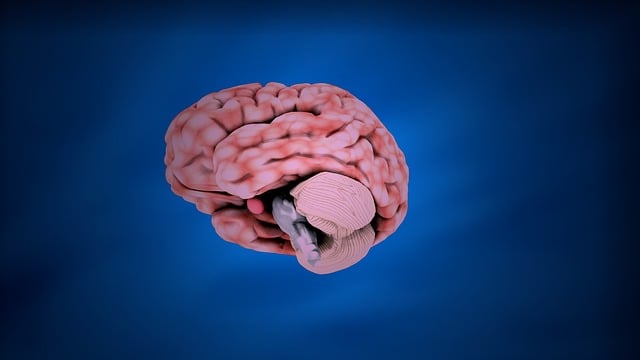Wheat Ridge Grief Counseling Therapy leverages positive thinking as a powerful tool for enhancing overall well-being, managing stress, anxiety, and depression, while fostering resilience. By identifying and challenging negative thought patterns through structured exercises like mental wellness journaling, individuals cultivate a more optimistic mindset. The therapy integrates these practices into daily routines, including gratitude practices and mindfulness activities, to promote emotional healing and inner peace. Public awareness campaigns further support individuals in taking charge of their mental health through positive thinking techniques.
Discover the transformative power of positive thinking with our comprehensive guide. Explore how Wheat Ridge Grief Counseling Therapy leverages this approach to enhance well-being. Learn about the science behind positive thinking and its profound impact on mental health. Understand negative thought patterns and master practical exercises for cultivating a resilient, optimistic mindset. Gain actionable tips from counselors to seamlessly integrate positive thinking into your daily routine.
- Understanding Positive Thinking and its Impact on Well-being
- The Role of Wheat Ridge Grief Counseling Therapy in Promoting Positive Mindset
- Identifying Negative Thought Patterns: A Step-by-Step Guide
- Practical Exercises for Cultivating a Positive Mental Perspective
- Integrating Positive Thinking into Daily Life: Tips from Counselors
Understanding Positive Thinking and its Impact on Well-being

Positive thinking is a powerful tool that can significantly impact an individual’s overall well-being. At its core, it involves cultivating optimistic attitudes and beliefs, focusing on personal strengths, and interpreting challenges as opportunities for growth. This shift in perspective has been shown to have profound effects on mental health, reducing stress, anxiety, and depression while enhancing resilience. By embracing positive thinking, individuals can improve their emotional healing processes, fostering a sense of inner calm and satisfaction with life.
In the context of Wheat Ridge Grief Counseling Therapy, understanding positive thinking is invaluable. It aids in managing difficult emotions associated with loss and promotes healthy coping mechanisms. Moreover, incorporating positive thinking exercises into therapy sessions can empower clients to navigate their grief journeys more effectively. Effective risk management planning for mental health professionals also incorporates these techniques, ensuring that practitioners have the tools to support their clients’ emotional healing processes and conflict resolution skills.
The Role of Wheat Ridge Grief Counseling Therapy in Promoting Positive Mindset

Wheat Ridge Grief Counseling Therapy plays a pivotal role in fostering positive thinking and mental well-being. Beyond addressing grief and loss, this therapeutic approach is designed to empower individuals with essential tools for managing stress, anxiety, and negative thoughts. Through tailored sessions, clients learn effective coping strategies that not only enhance their ability to navigate crises but also boost their overall confidence and resilience.
The Wheat Ridge Grief Counseling Therapy incorporates elements of Mental Health Education Programs Design, offering valuable insights into the science of positive psychology. By teaching clients how to reframe negative perspectives, this therapy encourages a more optimistic mindset. Moreover, it provides Crisis Intervention Guidance, enabling individuals to swiftly and effectively manage emotional distress. This holistic approach ensures that participants not only recover from challenging experiences but also develop lasting strategies for cultivating a positive and empowering self-perception.
Identifying Negative Thought Patterns: A Step-by-Step Guide

Identifying Negative Thought Patterns is a crucial first step in implementing positive thinking exercises. This process involves becoming more aware of your self-talk and recognizing recurring negative thoughts. Start by paying attention to your inner dialogue throughout the day; notice when you catch yourself engaging in critical self-talk or pessimistic predictions about future events. Keep a journal to record these patterns, noting the triggers and situations that prompt them.
A helpful guide for this involves taking a step-by-step approach: first, acknowledge the negative thought without judgment. Then, question its validity; are there evidence-based reasons to believe this thought is accurate? Next, challenge the thought by considering alternative explanations or perspectives. For instance, if you find yourself thinking, “I always fail at everything,” counter it with specific examples of successes in your past. This process helps to reframe negative thoughts and cultivate a more positive mindset, laying the foundation for effective Wheat Ridge Grief Counseling Therapy and enhanced inner strength development.
Practical Exercises for Cultivating a Positive Mental Perspective

Cultivating a positive mental perspective is an accessible and powerful tool for enhancing overall well-being, and there are numerous practical exercises to help individuals achieve this. One effective method is mental wellness journaling, where individuals can capture their thoughts, reflect on experiences, and identify patterns that contribute to negative thinking. This practice allows one to actively challenge negative thought cycles by documenting positive aspects of daily life, fostering a more optimistic mindset.
Additionally, self-care routine development is vital for maintaining mental health. Engaging in regular physical activity, practicing mindfulness meditation, and adopting healthy eating habits can significantly impact an individual’s emotional state. The supportive environment offered by Wheat Ridge Grief Counseling Therapy encourages clients to explore these self-care practices, enhancing their ability to navigate life’s challenges with resilience and a more positive outlook.
Integrating Positive Thinking into Daily Life: Tips from Counselors

Integrating positive thinking into daily life is a powerful tool for emotional healing processes, and Wheat Ridge Grief Counseling Therapy offers valuable insights to help individuals achieve this transformative shift. Counselors emphasize that it’s not about ignoring negative emotions but rather adopting a mindset that focuses on optimism and gratitude. Start by setting aside a few minutes each day for reflection; this could be during your morning routine or before bedtime. Write down three things you’re grateful for, no matter how small they seem. It could be the warmth of the sun, a supportive friend, or even just having a comfortable bed to sleep in.
Additionally, practicing mindfulness can significantly contribute to positive thinking. Being present in the moment helps reduce anxiety relief and prevents our minds from wandering into worry or regret. Incorporate activities like meditation or deep breathing exercises into your daily routine. These simple practices can help train your mind to stay focused on the positive aspects of life, fostering a sense of inner peace and resilience. Public awareness campaigns development that promote these emotional healing processes can further empower individuals to take control of their mental well-being.
Implementing positive thinking exercises, as facilitated by Wheat Ridge Grief Counseling Therapy, can significantly enhance overall well-being. By understanding the impact of positive thinking and learning practical techniques like identifying and replacing negative thought patterns, individuals can cultivate a more optimistic mindset. Integrating these practices into daily life allows for greater resilience, improved mental health, and a profound sense of empowerment. Remember, fostering a positive perspective is a journey; with consistent effort, anyone can embrace the transformative power of a brighter, more hopeful outlook.













